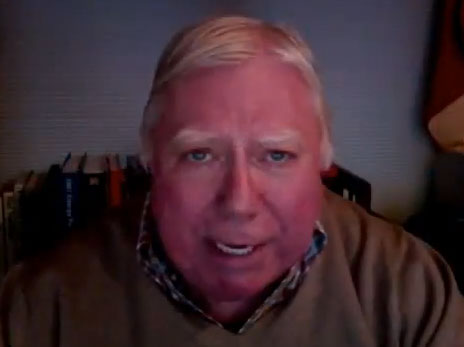Topic: WorldNetDaily
 A Jan. 3 WorldNetDaily article tries to take a victory lap on Jerome Corsi's 2005 WND-published book "Black Gold Stranglehold," which promoted the fringe theory that oil is continuously generated from within the Earth, or abiotic, rather than a finite biomass. WND's big claim is that Corsi's book accurately predicted rising crude oil prices:
A Jan. 3 WorldNetDaily article tries to take a victory lap on Jerome Corsi's 2005 WND-published book "Black Gold Stranglehold," which promoted the fringe theory that oil is continuously generated from within the Earth, or abiotic, rather than a finite biomass. WND's big claim is that Corsi's book accurately predicted rising crude oil prices:
The book, which was ridiculed by many industry analysts, argues against the “peak-oil theory” that predicted peak oil production had already been reached as the world was facing a diminishing quantity of oil available in the earth.
Corsi and Smith also predicted that oil, then trading below $50 a barrel, would trade at $100 a barrel, which has become an industry standard in recent years.
Oil expert Darren Wolfberg of BNP Paribas projected on Thursday that oil will trade in the $93 to $100 a barrel range in 2014.
Given the fact of continual instability in the Middle East, including an Iraq war that was going on at the time Corsi's book was published, that was hardly a risky prediction. WND then tries to give Corsi credit for shale oil:
Despite strong pushback from oil industry analysts, Corsi followed up the publication of “Black Gold Stranglehold” with a series of WND stories based on data predicting shale oil could be at the heart of a U.S. oil boom.
At the time, oil experts were going the opposite direction, predicting U.S. oil depletion was proceeding at an irreversible pace.
But the article to which WND links to prove this contains no mention of shale oil. And WND fails to mention that shale oil production is feasible only because of higher oil prices -- shale oil costs more to extract than crude, and Forbes reports that crude oil needs to be at least $80 a barrel in order for shale production to be profitable.
And late last year, Royal Dutch Shell took a $2.1 billion writedown on its $24 billion investment in shale in the U.S. because it has not generated a profit.
Of course, shale oil has nothing whatsoever to do with Corsi's abiotic oil theory since, like crude oil, it's already in the ground.








